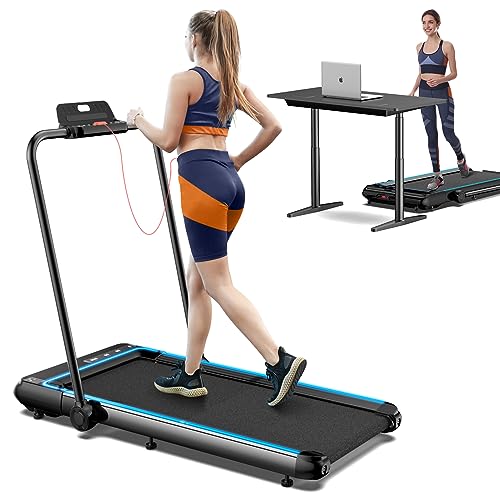A Guide To Walking Machine In 2024
The Walking Machine: A Comprehensive Guide to Your Fitness Companion
In today's fast-paced world, where time is a luxury, preserving a constant exercise regimen can be a challenge. For many, a walking machine— typically referred to as a treadmill— works as an ideal fitness companion. This post supplies a thorough take a look at walking machines, including their benefits, types, upkeep tips, and regularly asked concerns.
Why Choose a Walking Machine?
Walking machines provide a practical and efficient method to incorporate cardiovascular exercise into every day life. Here are numerous essential advantages:
- Convenience: Walking machines permit individuals to exercise anytime, no matter weather or time restrictions. They are ideal for hectic schedules.
- Flexibility: Users can stroll, jog, or run at their own speed and intensity.
- Safety: Walking machines provide a lower risk of injury compared to outside walking or running, specifically for beginners or those recuperating from injuries.
- Tracking Progress: Many treadmills included integrated displays that track metrics like speed, range, and calories burned.
Types of Walking Machines
When considering a walking machine, it's important to choose the ideal type based upon private physical fitness goals and area constraints. Below are the primary types of walking machines:
Type
Description
Handbook Treadmills
These machines do not have a motor, and users require to stroll or go to rotate the belt.
Electric Treadmills
Powered by an electric motor, permitting users to set the speed and incline easily.
Folding Treadmills
Designed for easy storage, these treadmills can be folded when not in use.
Desk Treadmills
Suitable for a dual work and workout environment, these compact machines enable walking while working.
Incline Trainers
These permit users to imitate uphill walking, enhancing exercise strength and calorie burn.
Choosing the Right Walking Machine
Choosing the ideal walking machine can substantially affect inspiration and effectiveness. Here are some elements to consider:
Key Features to Look For
- Motor Power: An effective motor makes sure a smooth and consistent workout. For periodic walkers, a 1.5 HP motor is typically adequate; for heavier usage, look for 3.0 HP and above.
- Belt Size: A larger and longer belt offers more area for a comfortable stride. Requirement sizes vary from 16 inches large and 50 inches long.
- Incline Options: Adjustable slope settings can replicate walking or running uphill, increasing the intensity of the workout.
- Shock Absorption: Good shock absorption reduces the threat of joint injuries and enhances comfort.
- Console Features: Look for integrated exercises, heart rate monitors, and connection functions like Bluetooth for a more engaging experience.
Budget Considerations
Walking machines been available in a wide variety of costs, depending on features and building and construction quality. Here's a rough budget breakdown:
Price Range
Functions
Under ₤ 300
Basic manual or little electric treadmills with limited functions.
₤ 300 – ₤ 700
More sophisticated electric treadmills with slope, medium power motors, and much better guarantees.
₤ 700 – ₤ 1500
Premium electric treadmills with larger built-in display screens, extensive functions, and guarantees.
₤ 1500 and above
High-end designs offering sophisticated innovation, functions, and long lasting building and construction for severe fitness lovers.
Maintenance Tips for Your Walking Machine
To make sure durability and optimum efficiency of a walking machine, consider the following maintenance ideas:
- Regular Cleaning: Dust and sweat can accumulate on the machine and the belt. Clean down the surface areas and clean the belt routinely.
- Lubrication: Depending on the design, oiling the running belt occasionally can prevent wear and tear. Check the manufacturer standards for advised lubrication schedules.
- Examination: Periodically examine the machine for loose screws or used parts. Tighten and change as needed.
- Calibration: Occasionally, inspect the calibration of your machine's metrics to ensure they provide accurate information.
- Correct Use: Follow the producer's recommendations for weight limits and operational guidelines.
FAQs About Walking Machines
1. Are walking machines a great workout?
Yes, walking machines supply an excellent cardiovascular workout, can assist with weight reduction, and enhance overall health.
2. How frequently should I use a walking machine?
Goal for a minimum of 150 minutes of moderate-intensity aerobic activity each week, which can quickly be achieved with routine sessions on a walking machine.
3. Can I slim down on a walking machine?
Yes, integrating a walking machine regimen into a healthy diet can promote weight reduction, especially if integrated with periods and incline training.
4. Is it safe for elders to utilize a walking machine?
Yes, walking machines can be safe for senior citizens with low-impact settings and safety features like handrails. Nevertheless, people ought to talk to their doctor before starting any workout program.
5. What's the distinction between a treadmill and a walking machine?
The term “walking machine” normally refers to a treadmill intended for walking, while “treadmill” can refer to machines utilized for various intensities, consisting of running.
With their versatility and convenience, walking machines can considerably improve one's fitness journey. By thoroughly choosing link home , guaranteeing appropriate upkeep, and incorporating various workout strategies, users can optimize their walking machine's benefits. Just like any workout program, consistency is essential to achieving long lasting fitness results.
